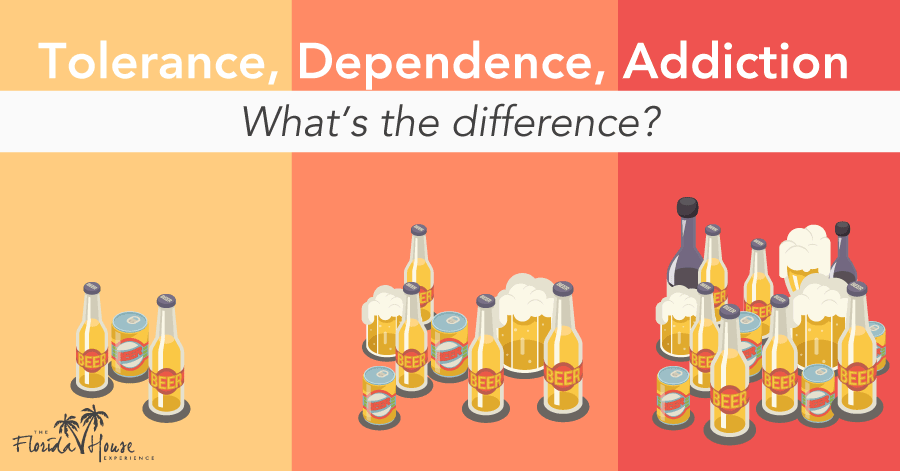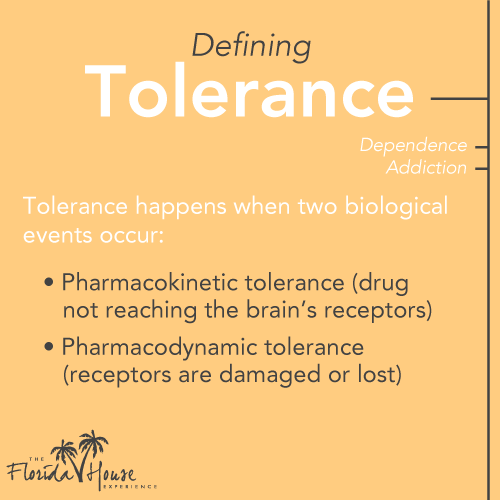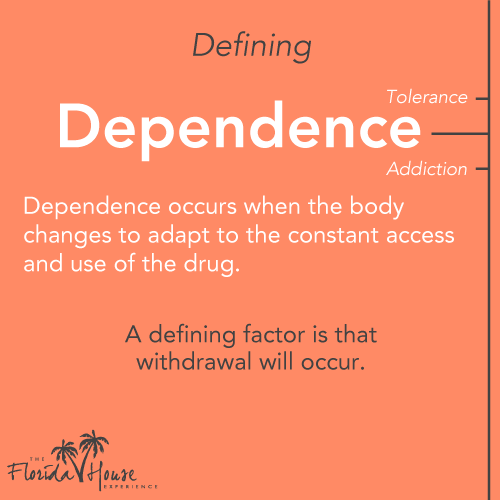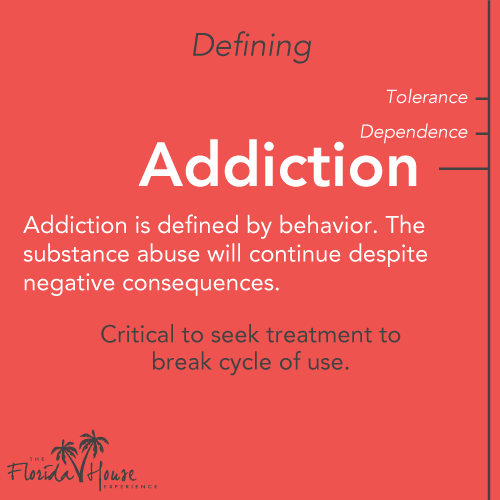
There is a significant difference between tolerance and dependence. By understanding this difference, it is possible for an individual living with drug addiction to see where they are and to take the best possible treatment path for their needs. Are you dependent? If so, seek out care immediately.
Drug Tolerance Definition
 Before a person becomes dependent on a drug, tolerance occurs. At this point, the body begins to recognize the drug itself as it has been taken numerous times. The body begins to get used to it. Initially, a desired feeling occurs, but over the continued use of the substance, the body needs a higher dose of the same drug to reach the same level of high or the same benefit. Those people who have a chemical tolerance take more of the same drug to get the same feeling.
Before a person becomes dependent on a drug, tolerance occurs. At this point, the body begins to recognize the drug itself as it has been taken numerous times. The body begins to get used to it. Initially, a desired feeling occurs, but over the continued use of the substance, the body needs a higher dose of the same drug to reach the same level of high or the same benefit. Those people who have a chemical tolerance take more of the same drug to get the same feeling.
How Does Tolerance Occur?
Tolerance happens when two biological events begin to happen. Pharmacokinetic tolerance is the first. At this point, the drug is not getting to the brain’s receptors. There are enzymes present in the body that see the drug, recognize it, and then break it down. The second is pharmacodynamics tolerance. At this level, there are damaged or otherwise lost receptors present. This happens as a result of a weakened chemical response in the brain.
Tolerance occurs differently among various drugs. It can also vary significantly between people and genders. However, some people may not see as much of a reaction to a drug that other people do. However, tolerance does not always require long-term use to happen. In fact, a tolerance to drugs such as cocaine can occur from a single usage.
 Dependence takes a bit more time. It occurs as a person continues to use a drug. Tolerance occurs first, and, over a period of time, this leads to more dependence. Dependence occurs when the body changes to adapt to the constant access and usage of the drug. The body adjusts to this use – though that adjustment is not necessarily a good thing. By adjusting, it becomes dependent. At this point, the body needs to have the drug present.
Dependence takes a bit more time. It occurs as a person continues to use a drug. Tolerance occurs first, and, over a period of time, this leads to more dependence. Dependence occurs when the body changes to adapt to the constant access and usage of the drug. The body adjusts to this use – though that adjustment is not necessarily a good thing. By adjusting, it becomes dependent. At this point, the body needs to have the drug present. Drug tolerance and dependence are different than addiction. That may seem very difficult to understand as most people use these terms so interchangeably. However, drug tolerance and dependence can lead to addiction. While these two elements are physiological changes – meaning they impact the body – addiction is about behavior. When addiction occurs, it is evident by a person’s continuous use of a substance even when that person is already experiencing negative consequences from it. When a person develops an addiction, they are unable to stop using even if he or she tried to do so.
Drug tolerance and dependence are different than addiction. That may seem very difficult to understand as most people use these terms so interchangeably. However, drug tolerance and dependence can lead to addiction. While these two elements are physiological changes – meaning they impact the body – addiction is about behavior. When addiction occurs, it is evident by a person’s continuous use of a substance even when that person is already experiencing negative consequences from it. When a person develops an addiction, they are unable to stop using even if he or she tried to do so.





